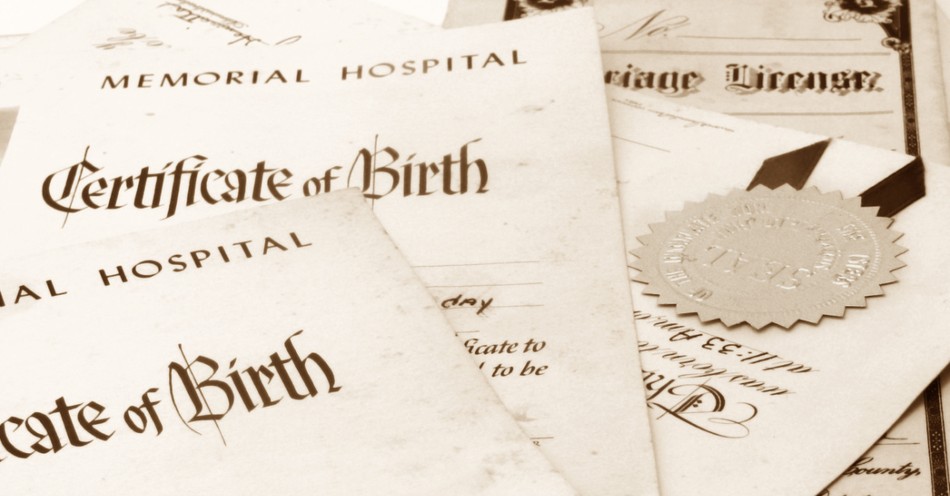A birthright was an honor, a double portion of the father’s property, given to the firstborn son in an ancient Hebrew family. The oldest son also received the dying father’s most dynamic blessing. Younger siblings received a smaller inheritance and blessing. The birthright and blessings functioned as the family patriarch’s last will and testament. The family respected these gifts as a way to reveal God’s will for the sons’ futures.
In the Bible, we see that a blessing was usually spoken at the time the birthright was given. The birthright is property and possessions. The blessing is a prophetic statement a father speaks through the guidance of the Holy Spirit.
While the birthright and blessing scene between a dying father and his son(s) appears in many Bible history narratives, they often feature a plot twist.
What Does the Bible Say about the Importance of Having a Birthright?
The birthright stakes were very high in Genesis 25 when Jacob swindled firstborn Esau out of his birthright and the better blessing. Jacob was an opportunist his entire life. When he was in his mother Rebekah’s womb, Jacob grabbed his twin Esau’s heel, trying to get out first. When Jacob and Esau were adults, Esau came home ravenous from hunting, and Jacob convinced Esau to give up his birthright in exchange for a hot dish of Jacob’s stew.
Later, Jacob and Rebekah deceived Isaac into giving Jacob the better blessing. At Isaac’s deathbed, when he was elderly and blind, Jacob came in wearing animal skins to impersonate his hairy, rugged brother. Isaac bought into the deception and gave Jacob the following blessing:
“May nations serve you and peoples bow down to you. Be lord over your brothers, and may the sons of your mother bow down to you. May those who curse you be cursed and those who bless you be blessed.” (Genesis 27:29)
When Esau arrived and discovered the deception, he demanded a blessing from Isaac and received the following:
“Your dwelling will be away from the earth’s richness, away from the dew of heaven above. You will live by the sword and you will serve your brother.” (Genesis 27:39-40)
Esau’s blessing doesn’t sound all that promising. He has sustained a great loss without a birthright and good blessing from Isaac.
Despite being the younger son, Jacob gained the birthright and blessing and became the one who carried on the covenant God had made with Abraham. He would later be named Israel, and his children would lay the foundation for the nation of God’s chosen people.
When Jacob was on his deathbed, he blessed each of his twelve sons before he died (Genesis 49:1-28). The sons’ blessings included prophecies about the fate of each son’s tribe in Canaan. These tribes were known as the twelve tribes of Israel, God’s new name for Jacob and his people (Genesis 32:28). The twelve sons’ fates follow the prophecy of Jacob’s blessings.
Who Did the Birthright Go To?
As mentioned earlier, the firstborn son traditionally received the birthright and best blessings. The Bible says in the Mosaic Law found in Deuteronomy 21:17b, “That son is the first sign of his father’s strength. The right of the firstborn belongs to him.” However, the older son did not always receive the birthright because the firstborn son is also God’s property and abides by his will. Numbers 3:13 declares, “for all the firstborn are mine. When I struck down all the firstborn in Egypt, I set apart for myself every firstborn in Israel, whether human or animal. They are to be mine. I am the Lord.”
God works through people to accomplish His plans. Reuben, Jacob’s firstborn son with his first wife, Leah, lost his birthright after sinning against his family. Jacob said, “Reuben, you are my firstborn…excelling in honor [and] power. Turbulent as the waters, you will no longer excel, for you went up onto your father’s bed [and] defiled it” (Genesis 49:1-4). Reuben lost his birthright—which included a double inheritance, the royal kingdom, and the priesthood—when he committed adultery with Bilhah, Jacob’s concubine (Genesis 35:22).
Jacob gave Reuben’s double inheritance to the younger brother Joseph and adopted two of Joseph’s sons, Manasseh and Ephraim (Genesis 48:5). Jacob also crossed his hands at his death and gave the younger grandson Ephraim a promise of greatness, much to Joseph’s dismay (Genesis 48:17-19).
Jacob skipped over his firstborn son Reuben even more by appointing Levi the priest of the family. As the firstborn son, Reuben would traditionally have become the priest of Jacob’s family. Instead, Levi founded the Hebrew line of priests in the tabernacle and the temple in Jerusalem.
Reuben also lost the judicial authority of ruling his people, traditionally passed on to a firstborn son (2 Chronicles 21:3). Jacob blessed his son Judah, rather than Reuben, with being the leader of the kingdom of Israel. Again, it was a divine appointment inspired by God, which did not follow Hebrew tradition.
How Does the Birthright Affect People in the Bible?
The die was cast for Reuben’s losing the birthright when Jacob gave Joseph a multicolored coat. Joseph didn’t have to do field work while wearing his fancy coat. The “princely” coat represented how Jacob loved his son Joseph the most and would give Joseph the greatest blessing). The other sons hated Joseph due to Jacob’s favoritism (Genesis 37:3-4).
As the oldest son, Reuben showed remarkable kindness to Joseph when he prevented his brothers from killing Joseph. And Reuben was unaware and later terribly upset when his brothers sold Joseph into slavery to people in an Egyptian caravan (Genesis 37:25-30).
Reuben believed future troubles with famine and Joseph’s rise to prominence in Egypt were just rewards for his brothers’ evil acts upon Joseph. Joseph, however, forgave his brothers, saying, “What you meant for harm . . . God meant for good” (Genesis 50:20). The hand of God carries out the actions of the patriarchs, the leaders of Israel.
Later in the royal line of God’s chosen people, God chooses Solomon rather than his ambitious half-brother Adonijah as successor to King David on the throne of Israel. Solomon had received “judicial authority” from David’s blessing to assume the throne. Older brother Adonijah took the throne anyway, enlisting the support of priests and prophets in the royal court. Bathsheba, Solomon’s mother, alerted David to declare Solomon as his heir throne immediately and with great fanfare. Solomon temporarily spares Adonijah’s life when Adonijah promises no longer to threaten Solomon’s rule (1 Kings 1:52-53).
Sibling rivalry and an inheritance from a father also appear in the New Testament parable of the prodigal son. An older brother is disgusted that his younger brother not only gets his inheritance early but leaves home and spends his inheritance in wild times. The older son is doubly angry when their father throws a lavish party when the younger son returns home, broke and begging for mercy (Luke 15:11-31).
The generous and forgiving father says to the jealous older son, “My son . . . you are always with me, and everything I have is yours” (Luke 15:31). The older son is most likely receiving a greater material blessing than the forgiven, younger son. Their father’s love and forgiveness are the younger son’s great blessing.
What Does the Bible Say about the Messiah’s Birthright?
Jesus was born from the royal lineage of King David. He is called “a root of Jesse,” and Jesse was David’s father. Jesus’ earthly parents, Joseph and Mary, could both trace their family tree back to King David (Matthew 1; Luke 1:27). We can read in the Bible that in their long history, Jewish people attached great, sacred importance to the rank of firstborn and “first-begotten.” Jesus is God’s “only begotten son” (John 3:16).
The apostle Paul wrote in Romans 8:29 that “For those God foreknew he also predestined to be conformed to the image of his Son, that he might be the firstborn among many brothers and sisters.” Jesus was given the birthright of being God’s son, and Jesus was also given the blessing of the enormous responsibility to save humanity from their sins. As “brothers and sisters,” we inherit the right to become other children of God. That is the blessing passed down from God to Jesus to all people.
Blessings spoken by angels, rather than fathers, announced our inheritance of salvation through Christ. An angel tells Joseph not to worry about the whole pregnant fiancée situation because the Holy Spirit conceived the baby (Matthew 1:18-21). And Mary’s blessing comes from the angel Gabriel, who tells her not to be afraid because her child is from the Holy Spirit of God and will save humanity (Luke 1:26-35).
Do We Have a Birthright Today?
We receive God’s blessing through Jesus, our birthright as Christians, from our heavenly father. This gift makes us children of God (John 1:12). Just as some Bible sons did not earn their birthright, we have not earned the gift of salvation. The twisted life stories of Old and New Testament sons make it clear that we do not earn or necessarily deserve a birthright. Still, like the wise and kind fathers in the Bible, our birthright is a gift of love given through Jesus’ sacrifice for all people, not just the oldest son. We can then run to God, just as the prodigal son ran to his father.
Photo Credit: ©Getty Images/Kathryn8

This article is part of our Bible resource for understanding the significance and meaning of biblical phrases and ideas. Here are our most popular Bible articles to grow in your knowledge of God's Word:
Promises of God in the Bible
Is "This Too Shall Pass" in the Bible?
What Was the Ark of the Covenant?
Top 10 Bible Stories for Kids
“Iron Sharpens Iron” in Proverbs 27:17
"Fearfully and Wonderfully Made" in Psalm 139
“Be Still and Know That I am God” in Psalm 46:10
"No Weapon Formed Against Me Shall Prosper" - Isaiah 54:17



